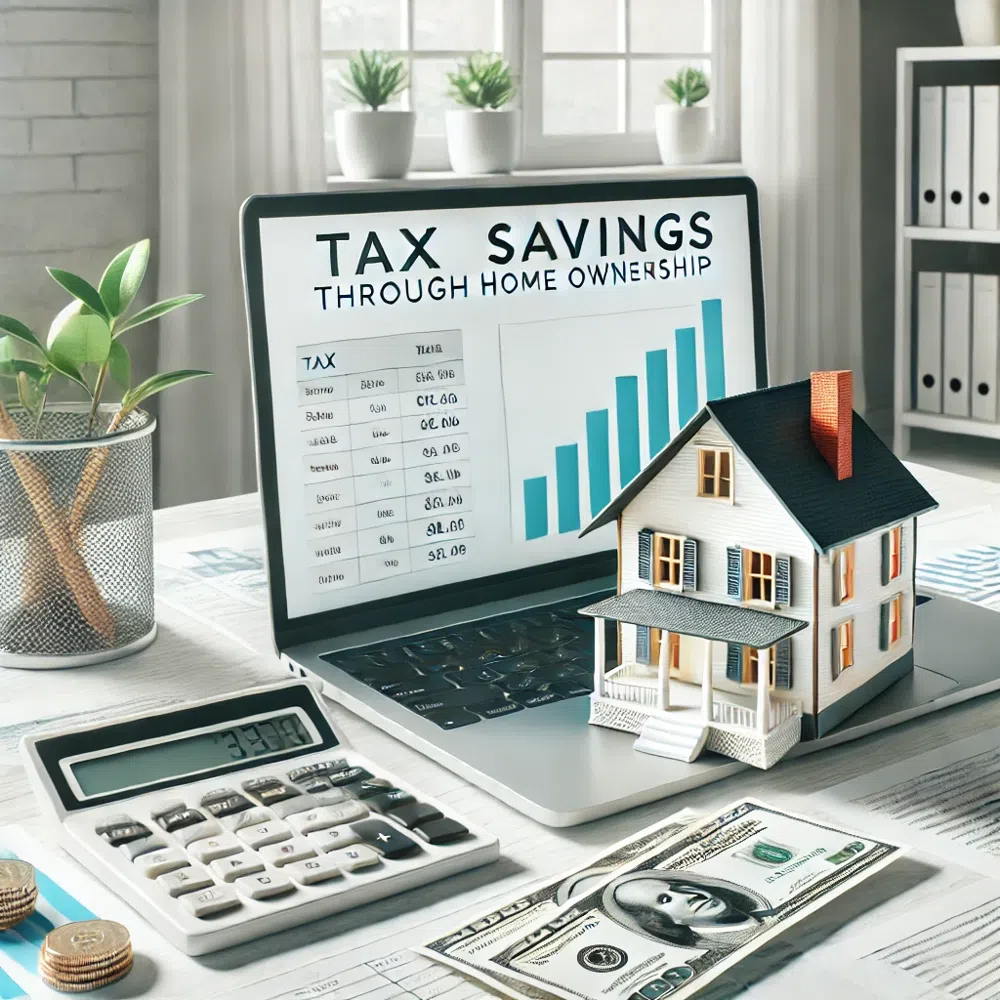Tax season can feel like a chore. But if you’re a homeowner, you’ve got some hidden gems waiting to be uncovered—dollar-saving deductions and credits that renters can only dream about!
Owning a home isn’t just about paying the bills and keeping up with maintenance. It’s also about making your investment work for you. Whether you’re a first-time homeowner or a seasoned pro, there’s always a new way to save. So, let’s dive into how your home can help put some cash back in your pocket when tax season rolls around.
Homeownership = Tax Write-Off Opportunities
Here’s a breakdown of the most common tax perks homeowners can take advantage of:
Mortgage Interest Deduction
One of the biggest benefits of homeownership is the ability to deduct mortgage interest. This deduction applies to interest paid on up to $750,000 of debt ($375,000 if married filing separately). During the early years of your mortgage, when most of your monthly payments go toward interest, this can be a massive money-saver.
Pro Tip: You’ll receive a Form 1098 from your lender, showing how much mortgage interest you paid for the year. Don’t forget to include this form when you file your taxes!
Property Tax Deduction
Homeowners can deduct up to $10,000 in combined state and local property taxes ($5,000 if filing separately). This includes not just your primary residence but also a second home, if you have one. It’s especially helpful for homeowners in high-tax areas where property taxes can eat into your monthly budget.
Heads Up: You’ll need to itemize your deductions to claim this. So, if you’re going with the standard deduction, this won’t apply.
Home Office Deduction
Did you know you can deduct a portion of your home expenses if you’re self-employed and use part of your home exclusively for business? This means you could potentially write off things like:
- Utilities
- Rent or mortgage interest
- Internet bills
- Maintenance and repairs
The simplified option allows you to deduct $5 per square foot of your home used for business (up to 300 square feet), while the regular method involves calculating actual expenses based on the percentage of your home used for business.
Pro Tip: Snap photos and keep records of your home office setup for documentation!
Energy-Efficient Upgrade Credits
Made some eco-friendly improvements to your home? You could be eligible for a tax credit of up to 30% of the cost for certain energy-efficient upgrades. This includes things like:
- Solar panels
- Solar water heaters
- Geothermal heat pumps
- Energy-efficient windows and doors
- Insulation upgrades
These credits are a direct reduction of the taxes you owe—meaning dollar-for-dollar savings. And if you’re planning any renovations this year, going green could help you save even more money come tax time.
Renters vs. Homeowners at Tax Time
Wondering how homeownership stacks up against renting when it comes to tax benefits? Here’s a quick comparison:
Renters:
- Pay monthly rent with no long-term return.
- Can’t deduct property taxes.
- Limited or no tax benefit for a home office.
- Any improvements benefit the landlord, not the renter.
- No equity building or tax-based advantages.
Homeowners:
- Equity Building: As you pay down your mortgage, your net worth grows.
- Energy Efficiency Credits: Up to 30% back on qualifying improvements.
- Home Office Deduction: Big perks for self-employed folks working from home.
- Property Tax Deduction: Up to $10,000 in savings if you itemize.
- Mortgage Interest Deduction: Potentially huge savings on your tax bill.
Renting might offer more flexibility, but homeowners enjoy a range of tax benefits that can seriously boost their savings.
Your Homeowner Tax Checklist
To make sure you’re maximizing your savings, here’s a list of what to gather before filing:
- Form 1098 – Provided by your lender; shows how much mortgage interest you paid.
- Property Tax Statements – Keep track of what you paid throughout the year.
- Receipts for Home Improvements – Especially for energy-efficient upgrades.
- Home Office Documentation – Square footage, utility bills, and proof of business use.
- Closing Documents – If you bought or sold a home last year.
- Records of Energy Credits Claimed – Especially if you’re claiming multi-year upgrades like solar.
Pro Tip: Store all your documents in one place—like a dedicated tax folder or a digital file—to make your life easier when tax time hits.
What’s New for 2025?
Tax benefits for homeowners haven’t changed much this year, but it’s worth noting a few things:
- Energy Efficiency Credits: These are getting more attention as homeowners are increasingly investing in eco-friendly improvements. Now’s the time to cash in if you’ve made green upgrades!
- Home Office Deduction: Remote work is here to stay, and if you’re self-employed, make sure you’re not missing out on this deduction.
Additionally, be sure to stay on top of any changes the IRS rolls out—because tax laws are always subject to change!
Final Thoughts
Homeownership can feel expensive. But what a lot of people don’t realize is that it comes with perks that can actually help you SAVE money when tax time rolls around. From mortgage interest deductions to energy efficiency credits, there are plenty of ways to ease your tax burden.
The key is to stay informed, keep good records, and work with a tax pro who understands real estate deductions. And if you’re planning any upgrades or renovations this year, remember that making your home more energy-efficient can lead to even more savings.


